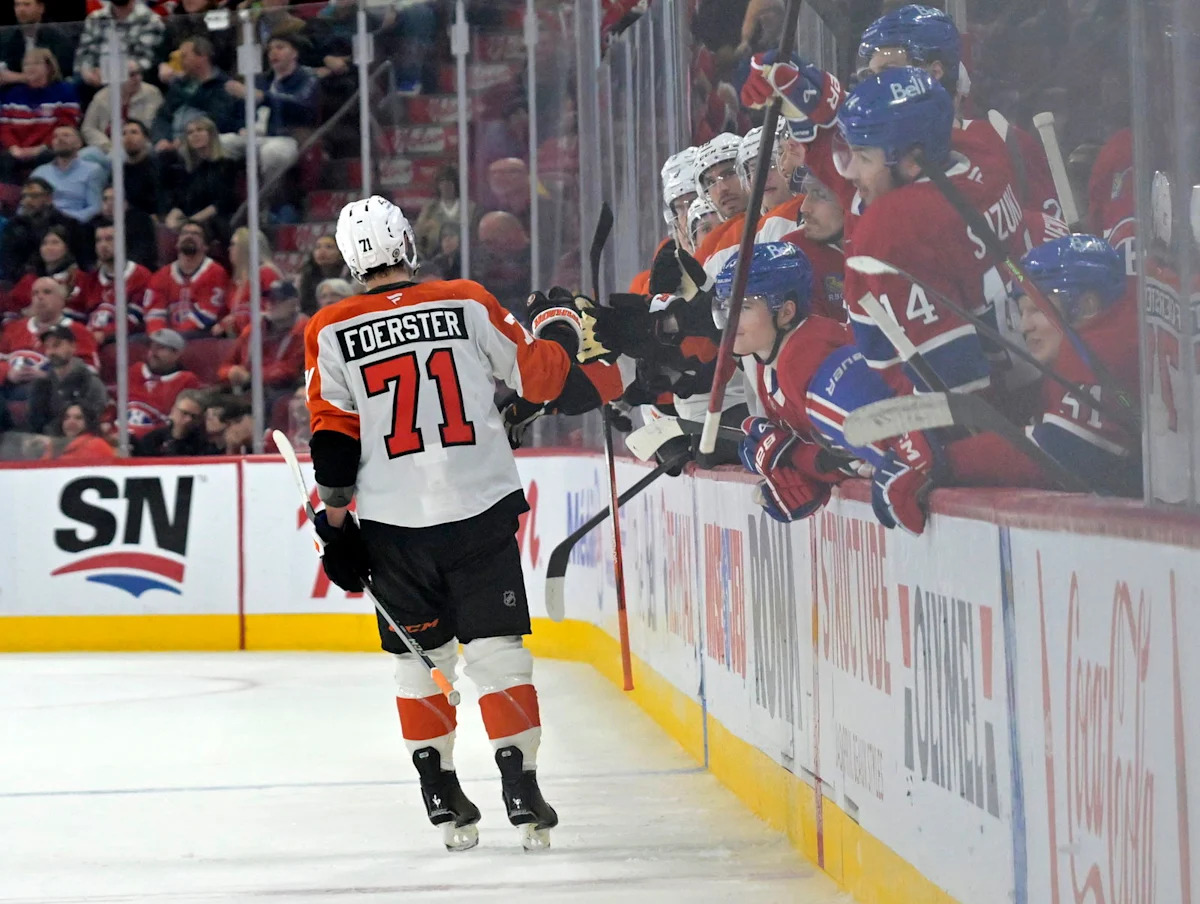
The Philadelphia Flyers made headlines recently by signing promising winger Tyson Foerster to a contract extension that has stirred discussion among fans and analysts alike. The deal, worth $7.5 million over two years, breaking down to an annual average value (AAV) of $3.75 million, may initially seem straightforward. However, when you delve deeper into the implications, it becomes clear that this signing is a calculated move, serving as a bridge for both the player and the organization.
At just 23 years of age, Foerster has been emerging as a valuable player for the Flyers, making his contract extension a point of significant interest. While many analysts had anticipated a longer extension—potentially spanning eight years with a higher cap hit—this shorter deal may, in fact, work in favor of both parties.
According to analytics site Evolving-Hockey, the chances of Foerster securing an eight-year extension were estimated at 27%, with a predicted cap hit of approximately $6.94 million annually. Interestingly, a two-year deal was deemed the second most likely scenario at 23%, with projections estimating a cap hit of around $4.161 million. Thus, the Flyers appear to have struck a favorable deal for their former first-round pick, effectively saving quite a bit on future expenditures.
One aspect that might go unnoticed is that this new contract guarantees the Flyers maintain control over Foerster even after its expiration. Upon the conclusion of this two-year deal, Foerster will still be a restricted free agent (RFA) at just 25 years old, allowing the team to negotiate terms that fit their broader strategy. This flexibility can be essential for the Flyers as they continue to reshape their roster and seek to enhance their competitive standing.
The short-term nature of the contract provides additional financial wiggle room for the Flyers. By avoiding a long-term commitment at this time, they can keep their salary cap more manageable, potentially allowing for larger moves in the coming seasons. It also preserves their leverage for future negotiations. If things go well and Foerster continues to improve, they can revisit the contract discussions with a stronger basis for a longer agreement.
Another noteworthy point is that the new contract does not include trade protection for Foerster. This aspect leaves the Flyers in full control of his situation, allowing them to make decisions that best serve the franchise. If unforeseen circumstances arise, such as substantial struggles in performance or if both parties fail to reach a longer-term agreement, this flexibility can be vital.
Additionally, Foerster’s UFA (unrestricted free agent) year will arrive in 2029. While the deal provides some level of control until 2027, fans and analysts alike might wonder if the Flyers could have pushed for even greater control over the player’s future. Nevertheless, the agreement is a positive outcome for both sides, showcasing a mutual willingness to progress together.
Reflecting on the broader context, the signing of Tyson Foerster has drawn favorable comparisons to other transactions made by the Flyers in recent memory. In particular, fans remember last year’s deals for players like Travis Konecny and Ivan Fedotov, which drew skepticism. In contrast, this contract for Foerster is largely seen as a significant win for the Flyers organization, which has been striving to establish some stability in an often turbulent landscape.
With Foerster’s deal now finalized, the Flyers retain approximately $23 million in cap space, with several key players still needing re-signing. Among those are Cam York, Noah Cates, and Jakob Pelletier, along with fringe players such as Olle Lycksell and Helge Grans. The financial room provided by Foerster’s contract will enable the franchise to make strategic decisions as they build toward future seasons.
On a grading scale, the Flyers’ handling of this contract receives a solid B+. While there may be room for improvement by securing a longer-term deal, the decision to go with a short bridge contract is validated by preserving cap space and maintaining control over Foerster’s future. It illustrates a nuanced understanding of the market dynamics, particularly when considering the various complexities of modern sports contracts.
In conclusion, the Tyson Foerster contract extension encapsulates the evolving nature of player negotiations in the NHL. While it may not have been the long-term commitment some expected, it serves as a practical solution to pressing challenges for both the player and the organization. As the Flyers look ahead, this signing reinforces their commitment to building a competitive team while leaving the door open for future opportunities. As we continue to monitor the developments within the organization, the progression of Tyson Foerster will undoubtedly be a significant storyline for the upcoming seasons.
Source link









